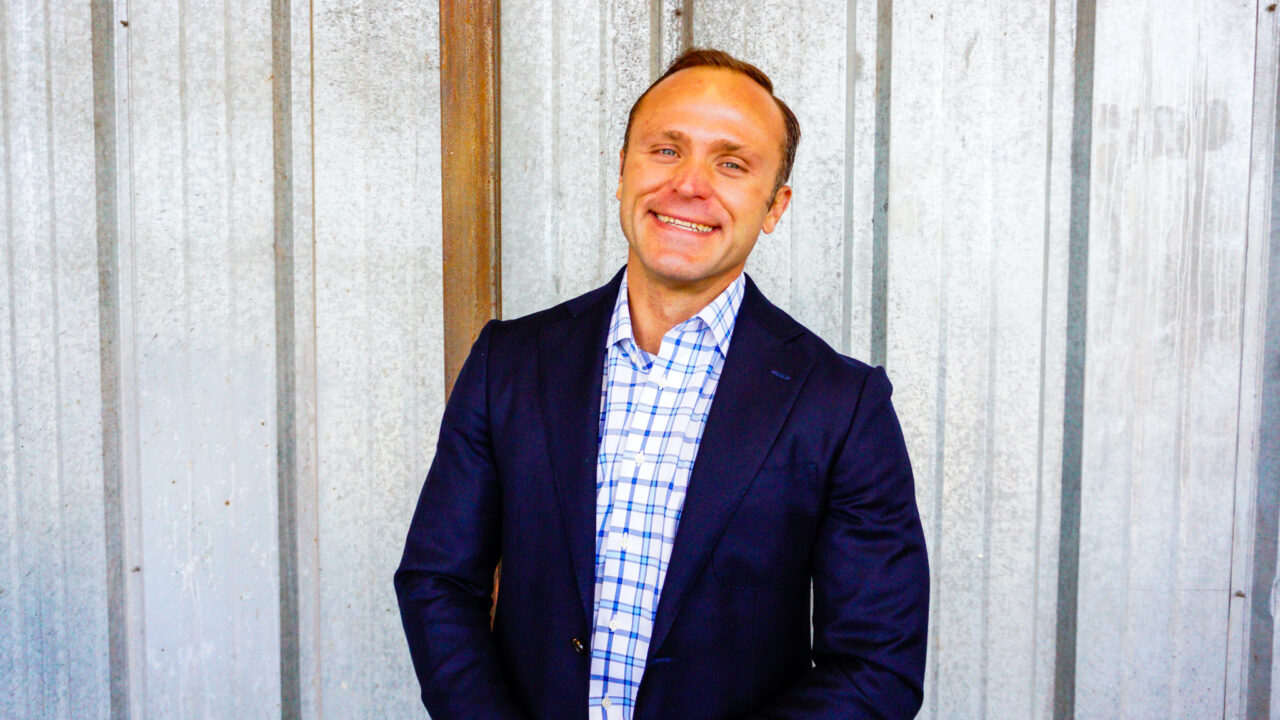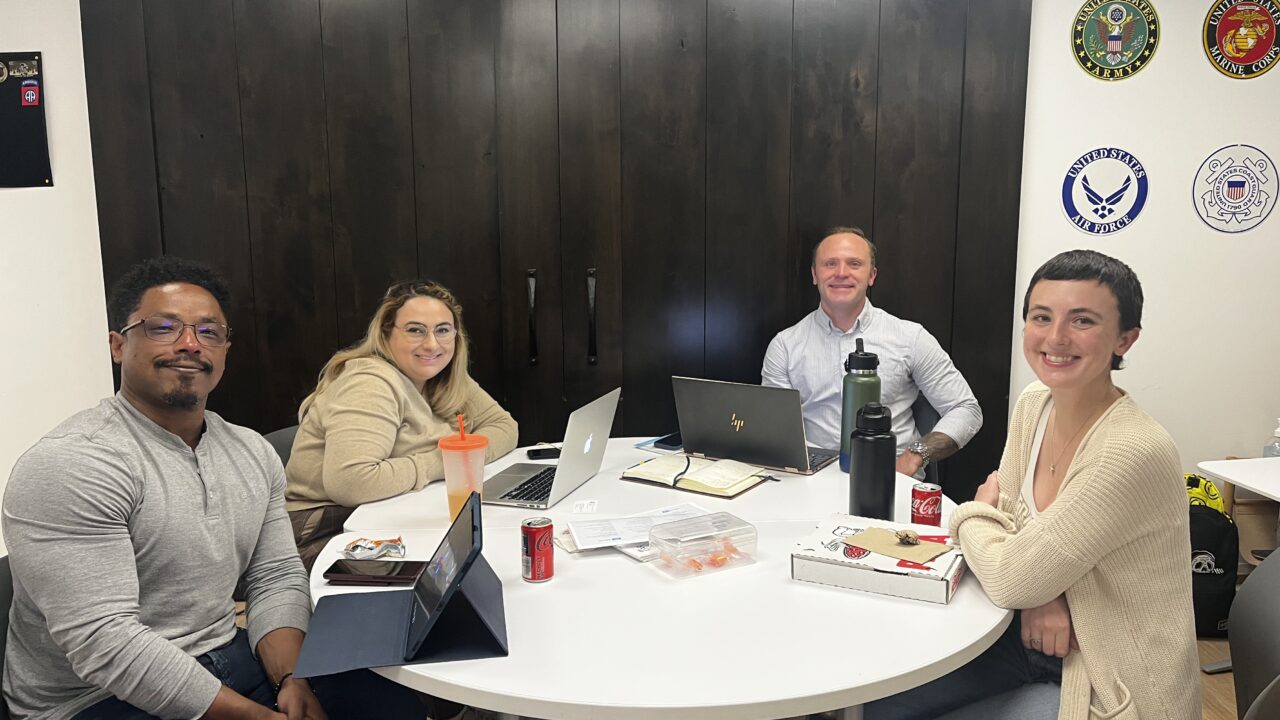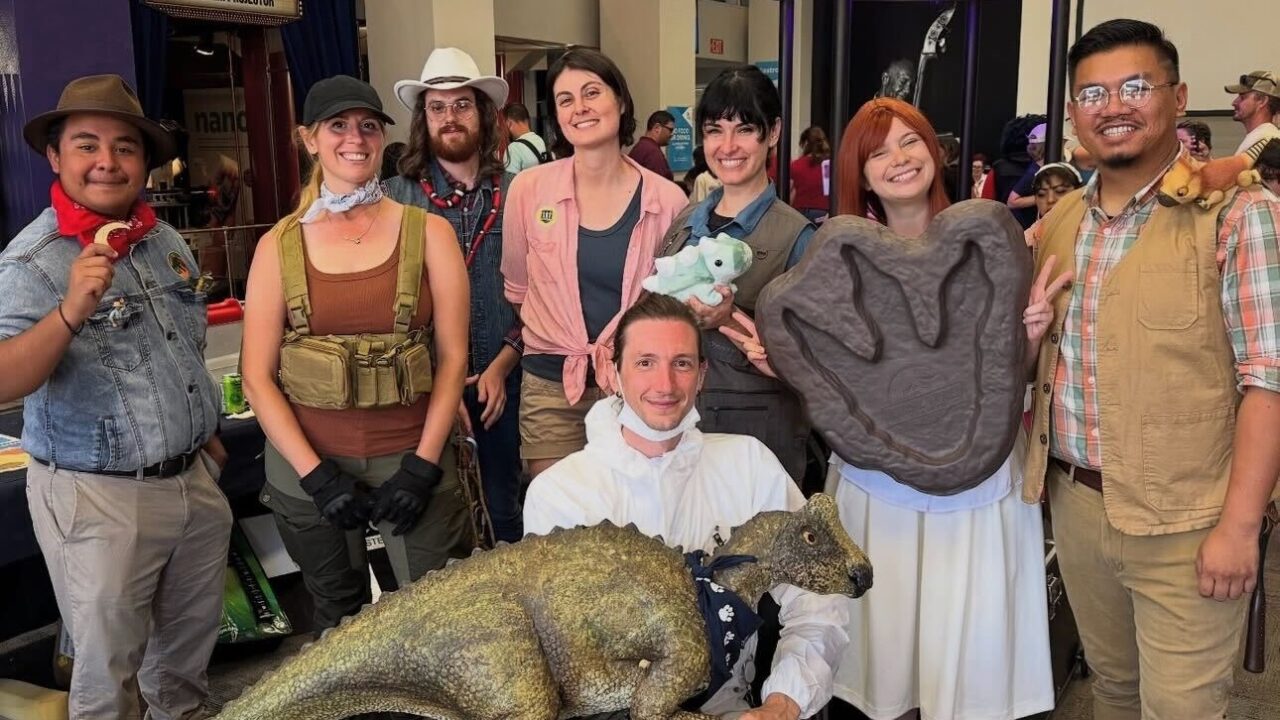
Stress-relief: How veteran Tyrus Korecki encourages mindfulness and mentorship
Learn about Tyrus Korecki's journey and the CDLS program VSTEM.
Tyrus Korecki understands stress.
Before beginning a PhD in Health Psychology at UCLA, Tyrus spent eight years in the Air Force as a pilot, an experience that gave him an empirical understanding of high-pressure conditions. A long-time yoga lover, he discovered meditation while serving. Tyrus quickly fell in love with the practice, noticing benefits both during intense situations on deployments and back home, when trying to be more present in his civilian life.
When the Air Force eventually medically retired him, Tyrus was left at a crossroads.
“I was at this place where all the skills I had acquired as an adult were no longer directly applicable for a job,” Tyrus says. “So—I came back to this thing of meditation.”
As his love for meditation continued to grow, so did his desire to study it from a scientific, theoretical standpoint—and thus, his journey to a PhD began.
The road was rocky. Tyrus’ experiences in the military gave him a valuable perspective on stress, but he had no background in STEM or research. He didn’t know how to apply for a PhD program, let alone how to be a competitive applicant, but he used a two-year gap between the military and graduate school to figure it out. This is ultimately what inspired him to get connected with CDLS’ Veterans in STEM (VSTEM) program when he started at UCLA.
“It was a tough road to navigate,” Tyrus shares. “Being an older student I knew I would need to do the groundwork to figure out how to do this, but the Veterans in STEM program is designed to streamline that process.”
Now, as a member of Dr. Julienne Bower’s Mind-Body Research Lab, Tyrus examines meditation, looking at downstream impacts such as depressive symptoms and inflammation. His most recent investigation is unique for his field. “A lot of investigations up to this point are very interested in mindfulness meditation—so the sitting, watching your breath,” he explains.
Instead, his study centers the brahmaviharas, four Buddhist virtues that include loving-kindness, compassion, joy and equanimity. These four practices can be cultivated through meditation to create positive emotional states. In collaboration with Diana Winston, director of UCLA Mindful, Tyrus will be delivering a program to healthcare providers at UCLA Health with a goal of analyzing how mindfulness impacts stress and burnout.
Tyrus remains passionate about integrating meditation, yoga and other mental health tools into basic training, the bootcamp that prepares new recruits for service. In fact, this goal is the driving force behind Tyrus’ pursuit of a PhD. Not everyone in the military has been receptive to mindful practices, and introducing them into the syllabus of basic training would be groundbreaking. Providing new recruits with meditative practices could enhance overall cognitive performance and focus, and build resilience.
“We all have an inherent response to a stressful situation,” Tyrus explains. “This response may be helpful, but it may make a situation worse. [Mindfulness] can help an individual recognize their initial response to a particular situation and decide whether that is the most skillful action to take. I think this quality is particularly important for individuals having to make life-changing decisions in intense, stressful situations.”
While there’s no space for mindful practices currently, Tyrus feels hopefully that he can create one.
“I’ll have this lived experience as a military member, but then this expertise as a psychologist,” Tyrus says. “I think – or I hope – that can be a powerful voice in the room with decisionmakers.”
Navigating academia as a veteran comes with stress, too. As a graduate student mentor with VSTEM, Tyrus aims to alleviate this stress by giving workshops to undergraduate students who are veterans or who are connected to veterans. The workshops cover skills necessary for excelling in research spaces, with topics such as “Searching for a Lab” and “Making a Ten-Minute Research Presentation.” The graduate student mentors also connect with students in one on one settings. Tyrus recalls working with one particular veteran who didn’t have any research experience. He helped the student construct a hypothesis, perform statistical analysis, and develop a final presentation for a UCLA conference.
“Seeing that evolution from beginning to end was really, really impactful,” Tyrus says.
Tryus’ story illustrates how individuals thrive when academic spaces welcome non-traditional backgrounds. Belonging to an underrepresented population, he’s now performing research with a mission to help people become more present and resilient every single day. On how we can make academia more accessible, Tyrus suggested that we all be more open about our identities. He believes that people feel more confident pursuing research when they see someone with a similar identity on the same path.
“If I do become a professor at a university, [I would say] ‘Hey, I was in the military.’ I think being more open about those identities is really a good way for people to find you,” Tyrus states.
Tyrus recognizes that he wouldn’t be where he is without the help and mentorship of others, including Dr. Katie Witkiewitz from the University of New Mexico, and strives to pay it forward. In fact, he believes it would be a disservice not to assist other veteran students.
In that vein, Tyrus ends with a piece of advice. “If you are somebody who has paved the way or are an underrepresented individual of some sort, be willing to help those who are coming behind you,” he encourages.




